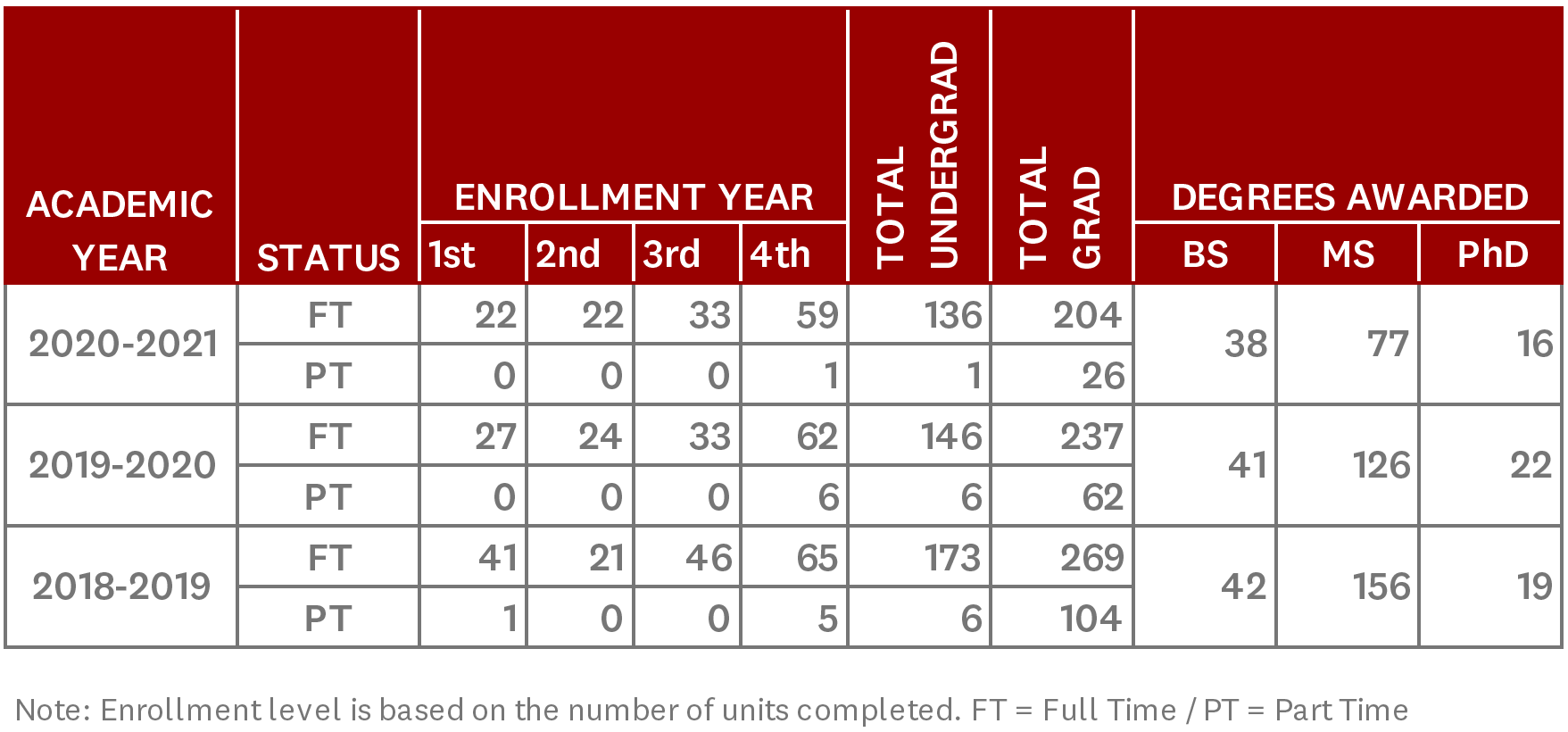Undergraduate Programs
The Mork Family Department of Chemical Engineering and Materials Science offers an undergraduate program in Chemical Engineering with five different areas of emphasis and a minor in Petroleum Engineering.
We provide our undergraduates with excellent preparation to enter either industry positions or to continue their educational training at the graduate level in M.S. and Ph.D. programs or professional degree programs such as MBA, Pharm.D, DDS, MD or JD. In addition to the required degree coursework, many of our students also acquire hands-on training through industry internships or research positions in academic laboratories.
The Engineering Accreditation Commission of ABET, accredits our program. All the areas of emphasis within Chemical Engineering are part of the Chemical Engineering accreditation.
APPLICATION DEADLINES
Early Action: November 1
Regular Decision: January 15
How to Apply
As a First Year Applicant
Find all requirements and recommendations on the Viterbi Admissions website.
Application deadlines:
- Early Action (Merit-Scholarship Consideration): November 1
- Regular Decision: January 15
As a Transfer
Find out everything you need to know (requirements, transfer plans, transferable courses, etc.) on the Viterbi Admissions Transfer page.
Dates and deadlines:
- Common App Opens: August 1
- Application Deadline for Fall (USC only accepts applications for the Fall semester): February 15
- Decisions/Request for Spring Grades Sent: May 31
Tuition & Finacial Aid

FINANCIAL AID
Learn more about financial aid at USC on the Financial Aid website at: financialaid.usc.edu
You can also find out about the types of aid in this link and how to apply for financial aid in this link.
Educational Objectives of our Undergraduate Programs
Our graduates are expected to attain the following educational objectives:
1
2
3
4
5
Student Outcomes
Upon completing their degree in Chemical Engineering, graduates are expected to have gained abilities to:
- An ability to identify, formulate, and solve complex engineering problems by applying principles of engineering, science, and mathematics.
- An ability to apply engineering design to produce solutions that meet specified needs with consideration of public health, safety, and welfare, as well as global, cultural, social, environmental, and economic factors.
- An ability to communicate effectively with a range of audiences.
- An ability to recognize ethical and professional responsibilities in engineering situations and make informed judgements, which must consider the impact of engineering solutions in global, economic, environmental, and societal contexts.
- An ability to function effectively on a team whose members together provide leadership, create a collaborative and inclusive environment, establish goals, plan tasks, and meet objectives.
- An ability to develop and conduct appropriate experimentation, analyze and interpret data, and use engineering judgment to draw conclusions.
- An ability to acquire and apply new knowledge, using appropriate learning strategies.
Student Enrollment & Graduation Data

FAQs


